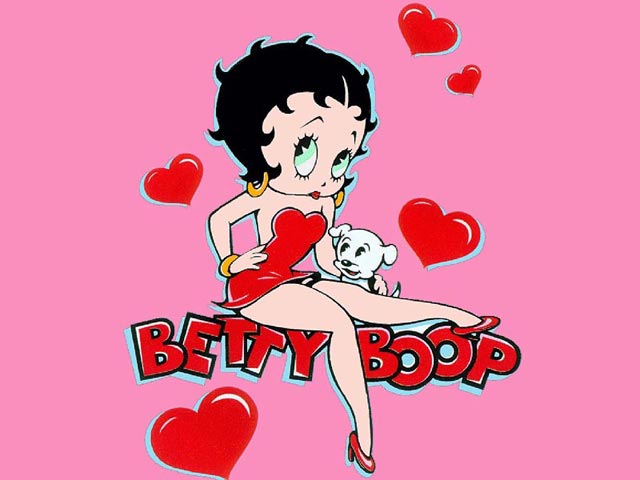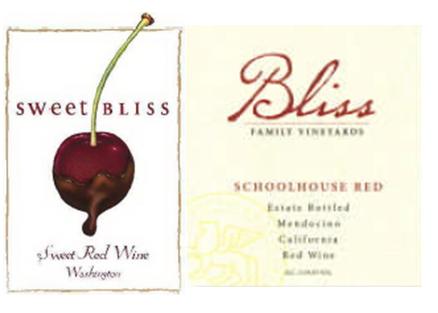Entries in Trademark Infringement (368)
STL on Rosetta Stone v. Google - There's Still Time to Attend Thursday's Tele-CLE
On Thursday, STL’ll be talking about the status of keyword liability.
Sign up. There’s still time.
The tele-CLE is quick and to the point. In one hour, you’ll know everything that’s worth knowing about Rosetta Stone v. Google. Not because I’m on the panel. The two other speakers really know their stuff. (Moderator Jennifer A. Albert’s bio here; panelist Sheldon H. Klein’s bio here. I’m flattered to be included.)
This case is worth knowing about. When the Fourth Circuit weighs in, it will be the most influential keyword decision to date. The Eastern District of Virginia’s sweeping decision in favor of Google already is taught in law schools; it was part of my class and I’m by no means alone. It’s a big deal.
Brochure here. It’s $175 for 1.0 hour CLE credit.
Depiction of Betty Boop Cartoon Aesthetically Functional, Not Infringing
 Betty Boop
Betty Boop
Depictions of the Betty Boop cartoon character are aesthetically functional and governed by copyright law. Therefore, they’re not protectable as trademarks.
The Ninth Circuit made those findings on Feb. 23.
Interestingly, it based its decision on two cases neither party cited in its briefs.
The Ninth Circuit affirmed the Central District of California’s summary judgment dismissal of plaintiff Fleischer Studios, Inc.’s trademark (and copyright) claims against defendant A.V.E.L.A., Inc., for reproducing the cartoon’s image on toys, dolls, and merchandise.
It found that International Order of Job’s Daughters v. Lindeburg & Co., 633 F.2d 912 (9th Cir. 1980), and Dastar Corp. v. Twentieth Century Fox Film Corp., 539 U.S. 23 (2003), barred plaintiff’s claims. Following Job’s Daughters, the court concluded “‘the articles themselves, the defendant’s merchandising practices, and any evidence that consumers have actually inferred a connection between the defendant’s product and the trademark owner,’ reveal that A.V.E.L.A. is not using Betty Boop as a trademark, but instead as a functional product.” In other words, consumers buy the good for the cartoon, not because the cartoon signifies it came from a particular source.
As for Dastar, the court concluded: “If we ruled that A.V.E.L.A.’s depictions of Betty Boop infringed Fleischer’s trademarks, the Betty Boop character would essentially never enter the public domain….” The Dastar court held that where a copyright is in the public domain, a party may not assert a trademark infringement action against an alleged infringer if that action is essentially a substitute for a copyright infringement action. Put another way, when a copyrighted work is at issue, an owner can’t do under trademark law what it can’t do can’t do under copyright law.
The court separately found that chain-of-title problems prevented Fleischer from enforcing rights under copyright law.
The case cite is Fleischer Studios, Inc. v. A.V.E.L.A., Inc., __ F.3d. __, 2011 WL 631449, No. 09-56317 (9th Cir. Feb. 23, 2011).
Joyous Trademark Dispute Pits "Sweet Bliss" Against "Bliss"
 The declaratory judgment plaintiff’s wine label (left) and the defendant’s
The declaratory judgment plaintiff’s wine label (left) and the defendant’s
I guess I wasn’t in the mood to blog about wine.
It was right after New Year’s, after all.
On Jan. 4, West Richland, Wash., winery Pacific Rim Winemakers, Inc., filed suit in the Western District against the Hopeland, Calif., winery Brutocao Vineyards, Inc., for a declaration of noninfringement.
At issue is Pacific Rim’s SWEET BLISS and Brutocao’s BLISS trademarks.
Brutocao owns Reg. No. 3,187,029 for the BLISS word mark for “wines.”
Pacific Rim owns the application Serial No. 85,146,280 for the SWEET BLISS word mark for “wine.”
Pacific Rim alleges Brutocao sent it a letter alleging that SWEET BLISS would confuse the public into thinking that Pacific Rim’s wine comes from Brutocao. Pacific Rim, obviously, believes otherwise.
Brutocao has not yet answered the complaint.
The case cite is Pacific Rim Winemakers, Inc. v. Brutocao Vineyards, Inc., No. 11-0011 (W.D. Wash.).
Trademark Principles Not Appropriate in Determining "Voter Confusion"
On Jan. 11, the Western District took its final step in deciding whether the state’s new primary election system established by voter initiative I-872 is unconstitutional. Under the system, elections for partisan office start with a primary in which every candidate declares his or her party preference or independent status. Voters may select any candidate on the ballot, regardless of party preference, and the two candidates who receive the most votes, also regardless of party preference, advance to the general election. Thus, the general election becomes a runoff between the top two vote-getters in the primary.
In 2005, the Washington State Republican Party filed suit to enjoin I-872’s implementation. The Washington State Democratic Central Committee and Libertarian Party of Washington State intervened. After trips to the Ninth Circuit and Washington Supreme Court, the political parties amended their complaints to allege that I-872 is unconstitutional because it creates “voter confusion” that unconstitutionally infringes on their First Amendment associational freedoms.
Now, this is a trademark law blog, not an election law blog, so here’s why it’s of interest to trademark-oriented folks. The political parties argued the court should apply Lanham Act likelihood of confusion principles in determining the existence of voter confusion.
However, Western District Judge John Coughenour found trademark analysis was not helpful.
He wrote: the court “declines the political parties’ invitation to review the possibility for voter confusion under traditional trademark analysis. Quite simply, trademark law does not lie in the First Amendment associational rights implicated in this matter. Trademark law is designed to protect the proprietary rights of private parties from improper commercial uses. This case does not involve the propriety rights of the political parties or Washington’s commercial use of any trademark. The comparison is inapposite.”
The court also noted it previously concluded “the State’s expression of candidates’ party preference on the ballot and in the voter pamphlets may not form the basis of a federal or state trademark violation.”
(Not that it’s significant to trademark practitioners, but the court concluded that “Washington’s implementation of I-872 with respect to partisan offices is constitutional because the ballot and accompanying information concisely and clearly explain that a candidate’s political-party preference does not imply that the candidate is nominated or endorsed by the party or that the party approves of or associates with that candidate. These instructions — along with voters’ ability to understand campaign issues and the fact that the voters themselves approved the new election system through the initiative process — eliminate the possibility of widespread voter confusion and with it the threat to the First Amendment.”)
The case cite is Washington Republican Party v. Washington State Grange, 2011 WL 92032, No. 05-927 (W.D. Wash. Jan. 11, 2011) (Coughenour, J.).
"Eden Organic" Mark Owner Sues Over "Eatin' Organics"
 Plaintiff’s and defendant’s logos
Plaintiff’s and defendant’s logos
Plaintiff Eden Foods, Inc., makes and sells organic foods.
Eden’s Organics, LLC, d/b/a Eatin’ Organics, LLC, delivers organic fruits and vegetables in Greater Seattle.
Eden Foods alleges that Eden’s Organics’ use of EDEN’S ORGANICS and EATIN’ ORGANICS infringes Eden Foods’ trademark registrations for EDEN, EDEN ORGANIC & DESIGN, and EDEN FOODS in connection with various vegetable products. It filed suit in the Western District on December 22.
Eden Foods’ complaint alleges a likelihood of confusion between the parties’ marks and uses and that a distributor has expressed actual confusion between the parties’ marks.
Eden’s Organics has not yet answered Eden Foods’ complaint.
The case cite is Eden Foods, Inc. v. Eden’s Organics, LLC, No. 10-2055 (W.D. Wash. Dec. 22, 2010).